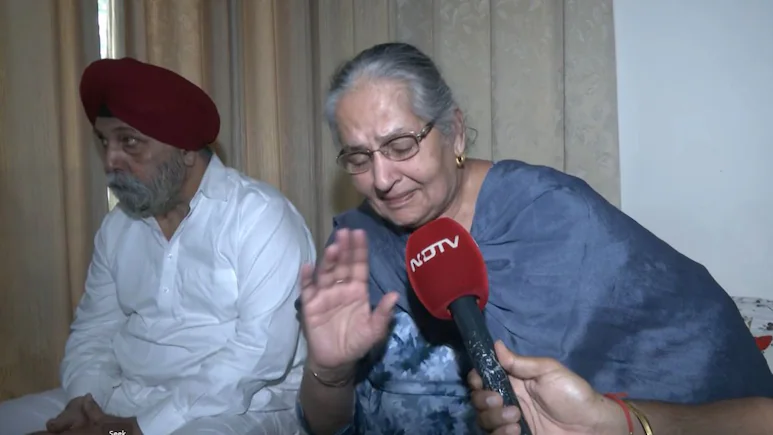Harjit Kaur, a 73-year-old grandmother from Punjab who lived in California for more than 30 years, has been deported to India after being detained by U.S. immigration authorities under what her lawyer and family describe as harsh and inhumane conditions.
Kaur moved to the U.S. in 1992 after her husband’s death, raising two sons and becoming a grandmother to five American-born grandchildren. She worked, paid taxes, and complied with mandatory ICE check-ins every six months. However, her asylum claim was rejected in 2012, leaving her without legal immigration status. Despite staying under the radar for more than a decade, U.S. law allows authorities to deport undocumented immigrants at any time once all legal avenues are exhausted — the basis for her removal.
On September 8, during what she expected to be a routine check-in, she was arrested. “I refused to sign anything without my lawyer. They said they already had my fingerprints. They told me I was under arrest but gave no reason,” Kaur recalled. Her lawyer, Deepak Ahluwalia, alleged she was denied basic facilities in detention, deprived of medicine, forced to sleep on the floor, and given non-vegetarian food despite her being vegetarian. On September 19, she was flown to India on a chartered plane.
Her sudden deportation has left her devastated. “My grandson told me, ‘I can’t see you in these clothes,’” she said of arriving in India wearing a detainee’s uniform. Now in Punjab with her siblings, she admits she does not even know if her old house still exists. “I don’t have any place to stay here. My only wish is to be sent back to my family. I just want to see my grandchildren again,” she said.
The case has reignited debate over immigration enforcement, compassion, and long-term undocumented residents who have spent decades contributing to American communities.
Who Was Wrong? The U.S. or Harjit Kaur?
- Why the U.S. Deported Her:
- Legally, the U.S. was within its rights. Harjit Kaur’s asylum claim was denied in 2012, leaving her undocumented. Under American immigration law, anyone without legal status can be deported once their case is closed.
- Authorities argue that enforcing the law consistently is necessary to deter illegal migration and protect the integrity of the immigration system.
- Why the Deportation Feels Harsh:
- Harjit Kaur lived in the U.S. for more than three decades, raised children and grandchildren, worked, and paid taxes. Many see her as part of the fabric of her community.
- Critics argue that deporting an elderly grandmother who posed no threat shows a lack of compassion, especially given allegations of mistreatment in detention.
- Her supporters believe that after so long, she should have been offered a pathway to legal residency rather than uprooted at age 73.
- Legally, the U.S. followed immigration law by deporting someone without valid status.
- Morally and socially, many view the decision as unnecessarily cruel, given her age, ties to her family, and decades of contribution to the community.

